Most Peaceful Countries in Africa: The current peace and conflict rhetoric portrays Africa as a conflict-torn continent with the world’s greatest refugee and internal migration issue. The rhetoric stresses that it is an extremely impoverished region that is prone to barely containable diseases, has been harmed by a colonial past, and is increasingly threatened by Islamic radicalism. Indeed, throughout the last two decades, Africa has experienced dozens of battles over a range of topics, including land, resources, political power, money, security, religion, and identity.

Deep differences over the nation’s basic vision, fight over state-society ties, and contests over who gets to lead are frequently at the heart of these conflicts. However, these conflicts have ended in some of the African countries such as Sierra Leone, Liberia, Côte d’Ivoire, Rwanda, Angola, Namibia, and South Africa.
The Institute of Economics and Peace’s (IEP) Global Peace Index research shows a rising disparity between the world’s most peaceful and least peaceful countries. The IEP is a non-profit think tank that focuses on peace as a positive, attainable, and tangible measure of human development. There has been a major improvement in tranquility for the second time in a decade. For the second year in a row, countries like Iraq improved dramatically in the rankings.
Recommended: African countries with most beautiful women
Top 14 Most Peaceful Countries in Africa 2024
1. Mauritius: Over the years, Mauritius has maintained its position as the most stable/peaceful country on the African continent. On a worldwide scale, the country is ranked 28th most peaceful country in the world. According to the Global Peace Index, the country held a peaceful election and achieved a high level of economic stability.

Mauritius is a tiny Indian Ocean Island. The African country has long been recognized as one of the most peaceful places on the planet. The government of Mauritius has implemented a number of initiatives aimed at promoting peace, such as preventing firearms from entering into the wrong hands and reconciling religious and cultural gaps.
2. Ghana: Ghana is the most tranquil country in West Africa; it has seen few crises while increasing its riches, making it Africa’s sole third-world country. More importantly, the country is rich in natural resources, including crude oil and gold.
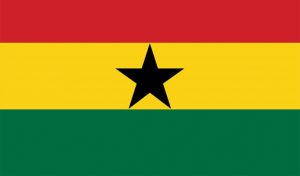
Unlike many other African countries, the country has enjoyed peace for many years due to its political stability. Despite the fact that Ghana is divided into various ethnic groups by religion, class, and politics, the people live in peace and harmony.
Also see: Countries with the best education system in the world
3. Botswana: Botswana is the third most peaceful country in Africa and the 41st most peaceful country in the world. Stability is a key component that has contributed to the country’s tranquility. The majority of African countries are transitioning from single-party to multiparty forms of administration.

Botswana, on the other hand, has been a multiparty democracy from independence. Botswana is a peaceful country with little to no political unrest, conflict, or other forms of violence. Furthermore, the country has never faced any major key events that may lead to a dangerously more violent course.
Furthermore, unlike many African countries, the country has not seen significant sociological changes or the destruction of pre-existing colonial systems.
4. Sierra Leone: Sierra Leone was one of the world’s most troubled countries between 1991 and 2002. A civil war erupted throughout the country, killing tens of thousands of people. The British military and the United Nations intervened to bring the country to a state of peace. Sierra Leone is now one of Africa’s most tranquil countries, ranking fourth in Africa and 46th overall.
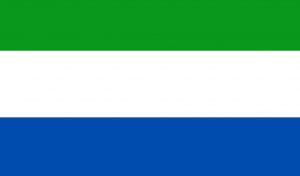
Sierra Leone’s government started on a peacebuilding program following the war. It began with the establishment of a truth and reconciliation commission, followed by the rehabilitation of victims, the reconstruction of devastated communities, the provision of opportunities for people, and the stabilization of the government and economy.
Also see: Most corrupt countries in Africa
5. Gambia: The Gambia is Africa’s fifth most tranquil country and the world’s 53rd. Despite the country’s fragile socio-economic and political climate, Gambia peacefully transitioned to a new political regime through democratic means in 2017, and elections have remained peaceful.
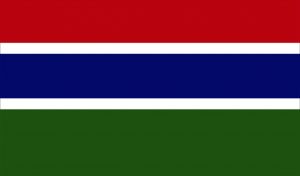
The Gambia improved its overall rating by one of the most substantial margins.
6. Senegal: Because of the coexistence of various religious groups, Senegal is Africa’s sixth most peaceful country and the world’s 56th. Aside from religion, it has a long history of cultivating global diplomatic, financial, and intellectual ties, all of which have contributed to its stability. Senegal has likewise had a stable democracy with peaceful leadership transfers.
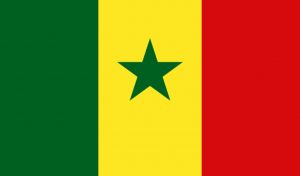
In contrast to several of its neighbors, the nation has never had a military coup. Although there has been a low-level civil war in southern Casamance for three decades, it has not been big enough to break the country’s stability. The cuisine of the nation is well-known, combining French and North African influences with traditional local traditions.
Recommended: Causes, Effects and Solutions to Conflict in Africa
7. Tanzania: Tanzania is ranked number seven in Africa and number 58 internationally on the list of peaceful nations. It’s also the most tranquil country in East Africa. Tanzania’s economy began to deteriorate rapidly two decades after independence. It then transitioned from a multiparty democracy to a single-party system.
Tanzania quickly became a one-party dictatorship. Tanzania, despite its political climate, is a peaceful country with a civic peace culture. In Tanzania, there is no major source of conflict based on race, religion, ethnicity, or politics.
8. Namibia: Namibia is Africa’s eighth most tranquil country. It is, nonetheless, the world’s 62nd most peaceful country, with an overall peace score of 1.861. Aside from the serenity, this land is home to a diverse range of species. In 1990, the nation declared independence from South Africa.
It has had political stability since then, with no major internal or external confrontations. Namibian elections are often calm and orderly, despite the fact that they are competitive. Namibians also enjoy the right to peaceful assembly, which the government attempts to respect on a regular basis.
Also see: Best African Countries to visit
9. Equatorial Guinea: Equatorial Guinea is Africa’s ninth-most tranquil country. It is also ranked 68th among the world’s most peaceful countries. Since its independence in 1968, the nation has only had two presidents. Teodoro Obiang Nguema Mbasogo, the current president, has been in office since August 1979.
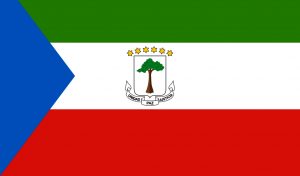
He is the world’s current non-royal national leader with the second-longest period of uninterrupted service. Equatorial Guinea, although being a peaceful country, has trouble holding free and fair elections since it is a one-party state.
10. Malawi: Malawi is the tenth most peaceful country in Africa and one of the most peaceful countries in East Africa. The East African country is recognized as the 73rd most peaceful country on the planet. Malawi has risen to become Africa’s seventh most peaceful country, passing Liberia and Namibia.
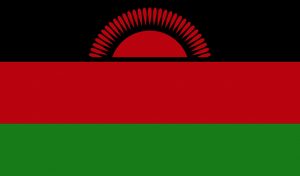
Malawi has climbed six places to 59th place in the overall rankings. Surprisingly, the country is populated by people recognized for their friendliness, making it a popular tourist destination.
Recommended: Countries with the best education system in Africa
11. Zambia: Zambia, an African country in the south, is renowned for its illustrious history, varied fauna, and tranquil atmosphere. Zambia is one of the nations in Africa with the highest levels of peace, according to the World Peace Index. The official language of Zambia is English, and more than 72 ethnic groups have coexisted happily there for many years.

In contrast to other African countries, Zambia boasts a stable political climate and a track record of conducting free and fair elections. Zambia’s economy is mostly driven by agriculture and mining, with tourism also having a large impact. Its several national parks, including South Luangwa, Kafue, and Lower Zambezi, offer breathtaking views and opportunities to see animals, making it a highly favored location for lovers of the natural world.
Also see: Highest Paying Jobs In Canada 2023
12. Liberia: Liberia, a nation in West Africa, has a turbulent past marked by civil war and political strife. To achieve peace and stability, Liberia has advanced significantly lately, and as a result, it is now regarded as one of the most peaceful nations in Africa. During a civil conflict that lasted 14 years and ended in 2003, the nation saw two peaceful changes of power before becoming a democracy.
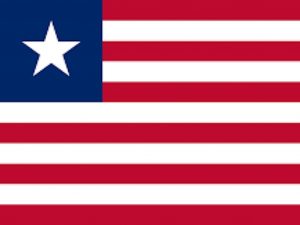
Liberia is also known for its role in peacekeeping missions in other African countries, further demonstrating its commitment to regional stability. However, challenges still exist in Liberia, including high poverty rates, corruption, and political polarization, which require continued efforts to sustain the country’s peaceful status.
Recommended: Online Websites to Learn to Code for Beginners
13. Rwanda: Rwanda is a landlocked country in East Africa that has made remarkable strides in maintaining peace and security since the devastating genocide of 1994. The government has implemented policies that promote social cohesion and reconciliation, such as the Gacaca court system, which focuses on community-based justice and has helped to bring about healing and forgiveness.
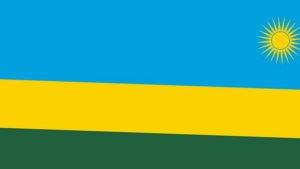
Moreover, Rwanda has made significant investments in healthcare and education, which have improved both human development and economic expansion. Also, the nation has a zero-tolerance stance against corruption, which has aided in fostering openness and accountability in politics. As a result of these efforts, Rwanda has established a reputation as one of Africa’s most tranquil and stable nations, drawing both investors and tourists.
14. Madagascar: Madagascar, located on the southeastern coast of Africa, is renowned for its peace despite being one of the world’s poorest countries. The country’s steady democratic governance and the people’s commitment to conventional principles like respect, tolerance, and community have enabled it to avoid much of the political and social chaos that other African nations have experienced.
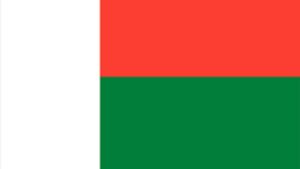
However, Madagascar is grappling with a range of pressing issues, including poverty, deforestation, and environmental degradation. Nonetheless, the country’s standing as a peaceful destination has remained undiminished, drawing tourists from across the world who come to explore its unique range of flora and fauna, stunning natural landscapes, and rich cultural heritage.
Recommended: Top 10 Best Rappers in Africa 2024
Conclusion
Political leadership, sound peacekeeping practice, successful mediation, and the supply of appropriate official capacities are only part of the equation for managing conflict and maintaining peace in a country. The potential is also found in the interactions between the state and society, as well as among various identity and interest groups within a society. It may be found in civics and history classes, the quality of professional associations, the beliefs promoted by conventional and social media, the habits instilled by old and new legal standards, interfaith conduct, and the arts and cultural events.
These social interactions and attitudes have the power to unite or divide a community. The contribution to peace and stability that groups and social institutions living in conflict zones can make is often overlooked in traditional approaches to understanding conflict management.

Edeh Samuel Chukwuemeka, ACMC, is a lawyer and a certified mediator/conciliator in Nigeria. He is also a developer with knowledge in various programming languages. Samuel is determined to leverage his skills in technology, SEO, and legal practice to revolutionize the legal profession worldwide by creating web and mobile applications that simplify legal research. Sam is also passionate about educating and providing valuable information to people.